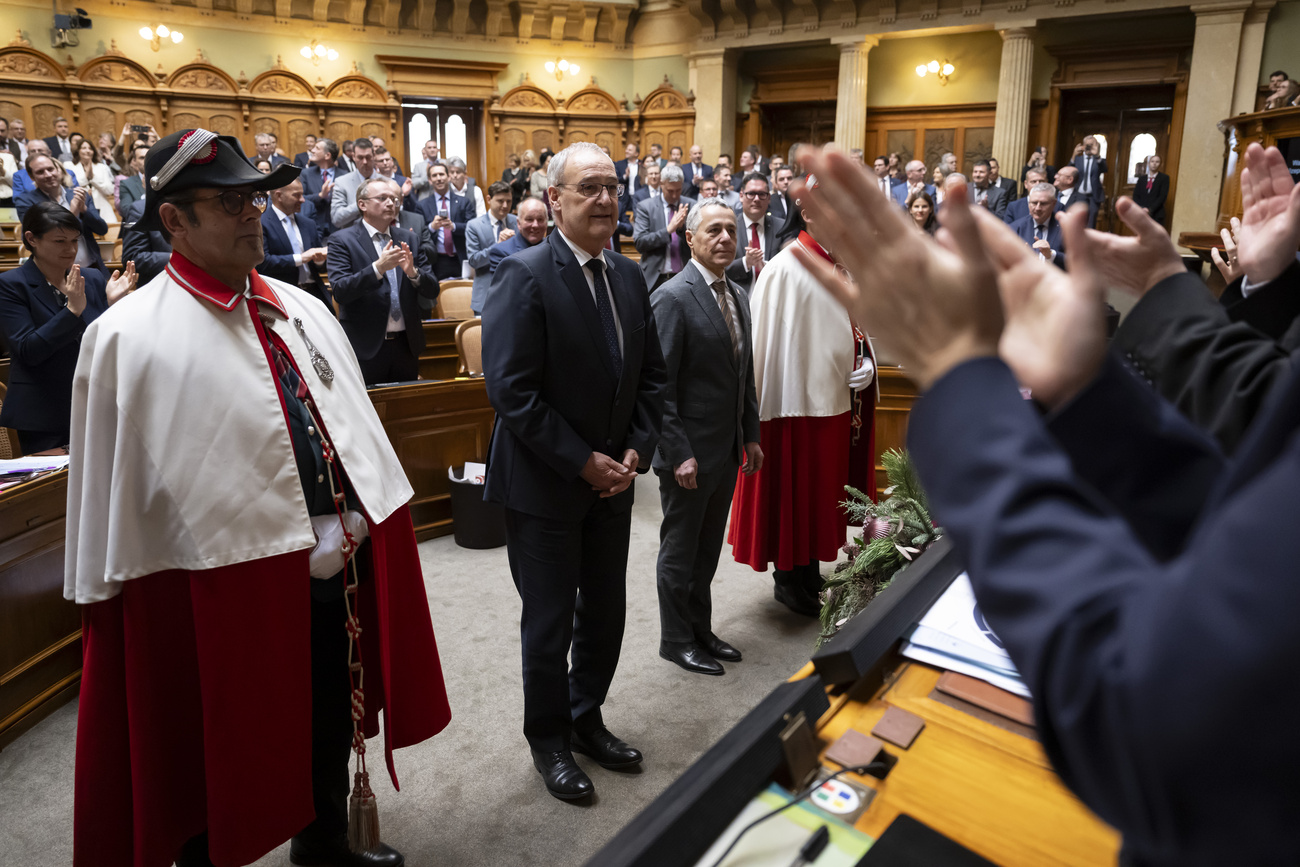
‘Money plays growing role in Swiss democracy’

In a conversational democracy like Switzerland, citizens associations must work very hard to make their voices heard. A new challenge is the lack of publicly financed participatory infrastructure, says Katharina Prelicz-Huber, president of the Trade Union for Public Service Workers.
The interview was conducted on the fringes of an international congress in Basel earlier this month. Prelicz held a workshop on how to make effective use of direct democracy in Switzerland.
swissinfo.ch: What’s typical of Swiss civil society?
Katharina Prelicz-Huber: There is a civic association for almost everything in Switzerland. Or, one can say that there is an association for every issue in the country.
You just need two people to officially set up an association. Hence, the many different interests of Swiss society are reflected in the broad range of Swiss non-profit organisations.
swissinfo.ch: Are these many associations politically effective?
K.P-H.: In Switzerland’s political system of power sharing, you always need the support of the majority. Small civic associations have to work very hard to achieve this goal.
Hence, to be politically effective, an association should form alliances. Or, it should build a platform that unites those groups that share the same interests. Alternatively, a small non-profit organisation might cooperate with political parties or trade unions that are already powerful.

swissinfo.ch: Switzerland has a long tradition of modern direct democracy. The citizens initiative is a tool to participate in law-making. Are there any other, new instruments Swiss people can use to influence politics?
K.P-H.: There are different forms of citizens’ dialogue underway like round tables or workshops. These formats make it possible to feed new ideas into the political system.
They are mainly effective at the municipal level. Switzerland has a strong system of federalism: Municipalities and cantons have their own constitutions, budgets as well as their own tax systems.
Hence, a municipality has a lot of power in designing its infrastructure. When citizens’ interests are included in big projects right from the start, it is very likely that these projects find the support of the majority at the ballot box.
swissinfo.ch: You mentioned infrastructure. What kind of broader support would you like to see realised for Switzerland’s system of direct democracy?
K.P-H.: Swiss direct democracy needs a fully-fledged public service.
This may seem obvious but for direct democracy to work there must be spaces where people can meet. These venues must not be expensive to rent.
As direct democracy gives people the power to take decisions, citizens must be well-educated, hence direct democracy requires a good educational system. And parliamentarians must know how the system works.
For people to gather and to discuss politics there must also be the freedom of speech and assembly. Direct democracy is only possible with citizens rights actually existing in practice.
This text is part of #DearDemocracy, a platform on direct democracy issues, by swissinfo.ch.
swissinfo.ch: How big is the gap between these norms and reality?
K.P-H.: Over the past century, Switzerland has succeeded in building a high level of public service. Yet more and more throughout the past 20 years, this high level has been threatened due to cost-cutting measures.
For example, campaigners for initiatives cannot rent rooms anymore at reduced costs. Publicly funded newspapers and electronic media are subjects to spending cuts.
Now, money definitely plays a role in Swiss direct democracy.
Yet not everybody has the same access to funding and the media. So now, there is a very strong imbalance.
Switzerland’s system of direct democracy needs more public support. But instead, it is getting less unfortunately.
This is a slightly adapted version of an interview published by Democracy InternationalExternal link (DI) and the people2powerExternal link (P2P) democracy platform. swissinfo.ch is a media partner of both organisations.

In compliance with the JTI standards
More: SWI swissinfo.ch certified by the Journalism Trust Initiative































You can find an overview of ongoing debates with our journalists here . Please join us!
If you want to start a conversation about a topic raised in this article or want to report factual errors, email us at english@swissinfo.ch.